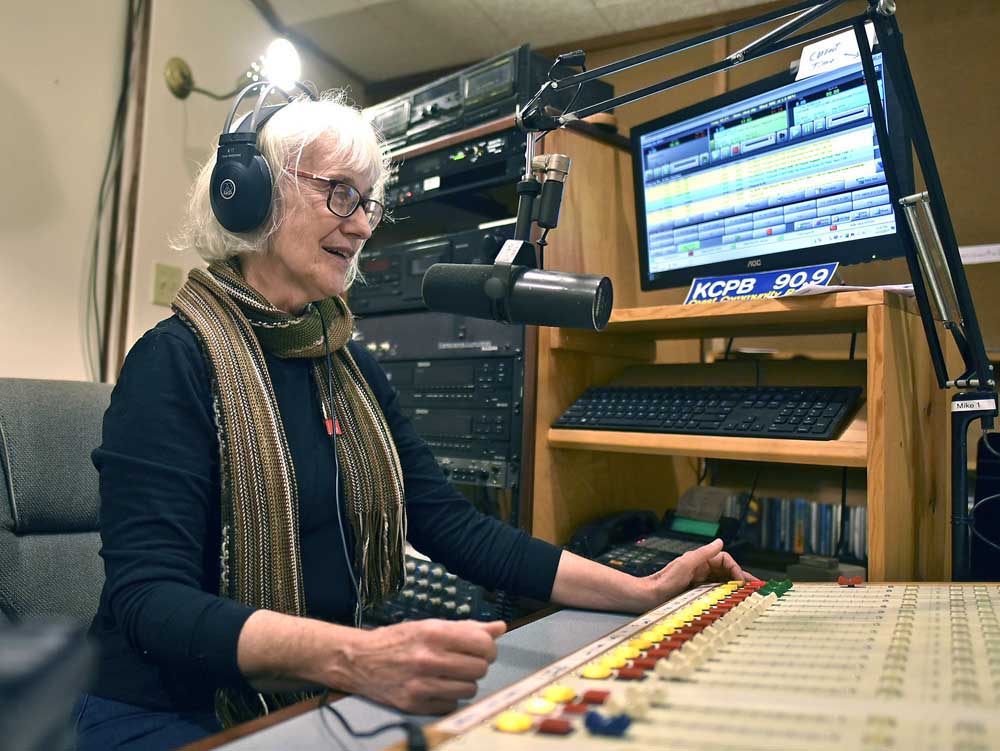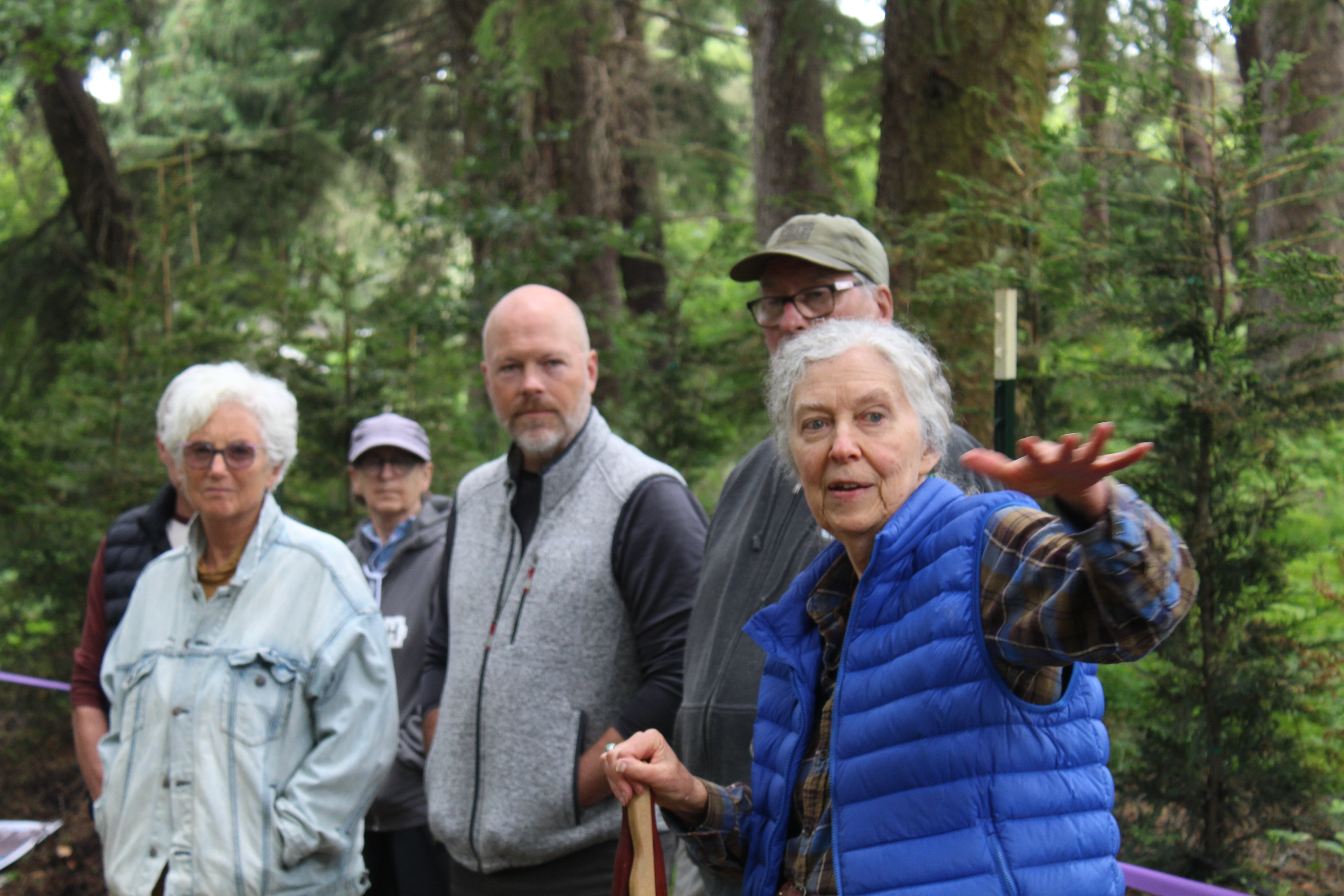Pedaling into problems
Published 5:00 pm Tuesday, August 12, 2008
Kris Daehler had set the wheels in motion for a new form of transit in Astoria.
Trending
With a city permit in hand, a new shop downtown and three pedal-powered taxis in his garage, Daehler planned to launch Astoria Pedal Cab service this month.
But don’t expect a ride too soon.
Five insurance agents produced only one quote, and the cost was higher than what Daehler plans to make off his business this year. A similar business sputtered in Seaside as it battled for a place on the road.
Trending
Even with a national move toward alternative modes of transportation, starting up an ecofriendly business like Astoria Pedal Cab remains in uphill battle.
As outfits nationwide face increased regulation and competition, smaller operations outside major cities are experiencing their own set of problems, in part because the industry is so new.
Ecofriendly cabs a ‘good fit’A longtime cyclist with six years’ experience as a full-service shop mechanic, Daehler recently opened the Bike Garage in the old Lovell’s car lot at 13th and Duane Streets. He works on bikes, sells both new and used models and builds his own frames tailored to customers’ specifications. With several partners, he hopes to also get a bike messenger service rolling, pedaling deliveries from business documents to food across downtown Astoria.
For the pedicab side of his business, Daehler hopes to ferry tourists from hotels to hot spots, bars and restaurants, and to provide locals an alternative to driving between downtown destinations.
His fleet includes three cabs, speedy, updated versions of the human-pulled rickshaw. The heavy-duty tricycles have carriages in the back. Each bench can seat two average-sized adults, or three smaller people.
Daehler plans for drivers to travel the flatter stretches of downtown, working mostly for tips. More than 20 people have already expressed interest in the job, he said.
With high gas prices these days persuading many to forgo four wheels in favor of two, he felt the recent explosion of cycling enthusiasm could last long after the North Coast’s tourist season, allowing his business to ride high with a strong local following year-round.
“There are zero emissions with this,” he said, while closing up his shop one evening. “We require no fuel, except for food.
“In the long run, this will be a good local transportation resource. I don’t think this has to be seen as a novelty.”
That notion was a hit with the city.
Astoria Community Development Director Brett Estes said pedicab service looks like a “good fit” for downtown.
“It could be something that adds to the character of our town and provides another means for people to get from one place to another,” he said. Estes envisioned the service becoming especially popular during events like the seasonal Sunday Market. “If someone has their packages they’ve picked up, and their car is parked on the other side of town, it’s a means for people to get over there fairly unobtrusively.”
Even so, Daehler’s pedicabs haven’t left the garage.
Reinventing the wheelHistorically popular in other countries and increasingly visible in urban settings such as Seattle and New York City, human-powered cabs more recently caught on in bike-friendly Portland, and they’re gaining traction in smaller locales like Eugene.
Oregon bike cabbies generally follow rules of the road similar to other cyclists, using bike lanes when they’re available and sharing the main lanes when they’re not. But regulations specific to pedicab operations vary by city. Nationally, some places cap the number of cabs allowed. Others limit the streets they can travel. Some cities send inspectors to examine new rigs and require specific liability coverage in case of mishaps.
After forking out roughly $2,500 apiece for his three cabs – two from Hauer’s Cyclery, and an antique rig found on eBay that cost as much to ship as it did to buy it – and obtaining a taxi business license, the city of Astoria’s only requirement, Daehler thought he’d cleared the biggest hurdle.
As it turns out, at $5,000 up front for the year, insurance costs so much that buying it would likely put him out of business, and only one agent could give him a quote. “But I don’t think anybody in their right mind would go into business without it,” he said.
Pedaling customers around Portland is smooth sailing nowadays for Rose Pedal Pedicabs owner Casey Martell, but he admits it was a bumpier ride at first.
A few insurance companies now offer coverage specific to pedicab or other novelty operations, he said, but options were scarce when he began Rose Pedals six years ago.
“I thought I should have it, but nobody would offer it to me because they didn’t even know what a pedicab was,” he said recently, talking by phone while bicycling in Portland. “I’ve been falling back on the liability insurance I have on my house.”
He also encountered trouble offering rides in the city’s waterfront park – an argument settled in court, where Martell said a judge ruled his tip-based operation didn’t violate rules limiting commerce in public parks.
Since then, “it’s only gotten better and better,” Martell said, noting he may have helped pave an easier path for two other pedicab companies now working Portland’s streets. “It’s really an attraction for any city if it’s run properly.
“But if there’s no pedicab business where you’re at, you’re starting on the ground floor.”
North Coast resident Kevin Poole found himself entangled in legal issues when he opened Oregon Rickshaw Service in Seaside. Like Astoria Pedal Cab, he hoped to support short trips throughout the downtown core and during special events. With eight human-pulled rickshaws, insurance was cheap compared to pedicabs: $1,100 for the entire fleet.
But even after the city’s taxi ordinance was amended so rickshaws could share the road, Poole said the battle continued over perceived safety and traffic congestion issues, so he put the business on the back burner.
“It took me so long to get it going it became a financial burden,” Poole said. “Personally, I feel they should make allowances for novelty vehicles that are not polluting. We’re creating healthy jobs for men and women, and they’re very safe.”
“But we’re still trying to do it,” he said. “I’d love to do it again.”
Growing industry spurs collaborationAs the movement grows, pedicab operators may find power in numbers, said Ryan Hashagen, founder of Cascadia Cabs. His company has grown from one cab in 2007 to include many cabs and hundreds of drivers in Eugene, Portland, Seattle, British Columbia and Bellingham, Wash., his stomping grounds.
Hashagen began Cascadia as a collective, banking on the experience of veteran fleets in places like Seattle, where pedicabs have ferried passengers around town and to ball games for decades. He said it’s possible Daehler’s business could collaborate with his and enjoy some of the benefits.
Operating as a cooperative allows the drivers to share past experiences, recruiting and training ideas. It also offers economy of scale, a major benefit when it comes to purchasing insurance coverage, the company’s biggest expense, Hashegan said: “Our insurance rates go down because we have a lot of cabs.”
But as pedicab traffic picks up, conflict with others on the road may be unavoidable.
Despite screening drivers, limiting the steepness of routes, enforcing high training standards and hiring mechanics to examine each chariot’s safety before each shift, Hashagen is now sorting out an Aug. 6 accident in Seattle, where a Cascadia cab ran a red light and collided with a van, killing one of two passengers. Authorities believe it was the first fatality of its kind in Washington. The cause remains under investigation.
Despite all of the complications he’s faced, Daehler will continue trying to get pedicabs up and running in Astoria.
“I really feel like pedicabs are an amazing opportunity to displace cars in downtown,” he said. “I’m still sticking with it. I still believe in the whole deal and want it to happen, but it’s looking like a slower start than I thought it would be.”









